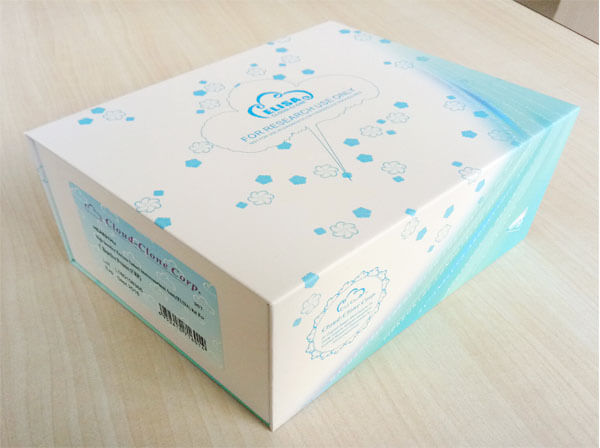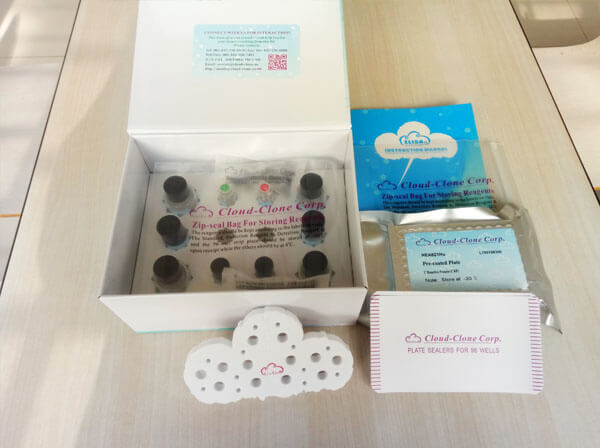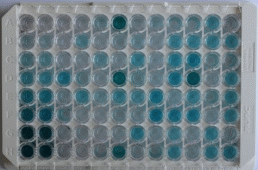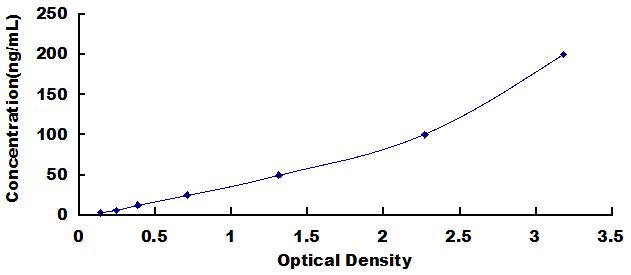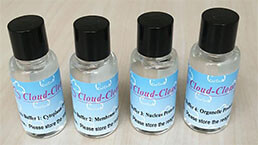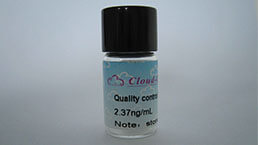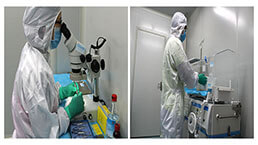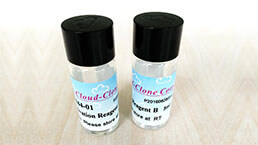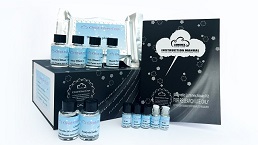Wide-range ELISA Kit for Acetylcholinesterase (ACHE) 

ARAChE; N-AChE; YT
- UOM
- FOB US$ 480.00 US$ 686.00 US$ 3,087.00 US$ 5,831.00 US$ 48,020.00
- Quantity
Overview
Properties
- Product No.WEB447Ra
- Organism SpeciesRattus norvegicus (Rat) Same name, Different species.
- ApplicationsEnzyme-linked immunosorbent assay for Antigen Detection.
Research use only - DownloadInstruction Manual
- CategorySignal transductionEnzyme & KinaseMetabolic pathwayHematologyNeuro science
Sign into your account
Share a new citation as an author
Upload your experimental result
Review

Contact us
Please fill in the blank.
Recovery
Matrices listed below were spiked with certain level of recombinant Wide-range Acetylcholinesterase (ACHE) and the recovery rates were calculated by comparing the measured value to the expected amount of Wide-range Acetylcholinesterase (ACHE) in samples.
| Matrix | Recovery range (%) | Average(%) |
| serum(n=5) | 78-88 | 84 |
| EDTA plasma(n=5) | 79-104 | 95 |
| heparin plasma(n=5) | 93-102 | 99 |
Precision
Intra-assay Precision (Precision within an assay): 3 samples with low, middle and high level Wide-range Acetylcholinesterase (ACHE) were tested 20 times on one plate, respectively.
Inter-assay Precision (Precision between assays): 3 samples with low, middle and high level Wide-range Acetylcholinesterase (ACHE) were tested on 3 different plates, 8 replicates in each plate.
CV(%) = SD/meanX100
Intra-Assay: CV<10%
Inter-Assay: CV<12%
Linearity
The linearity of the kit was assayed by testing samples spiked with appropriate concentration of Wide-range Acetylcholinesterase (ACHE) and their serial dilutions. The results were demonstrated by the percentage of calculated concentration to the expected.
| Sample | 1:2 | 1:4 | 1:8 | 1:16 |
| serum(n=5) | 86-97% | 79-90% | 92-99% | 84-101% |
| EDTA plasma(n=5) | 80-97% | 81-96% | 78-101% | 80-93% |
| heparin plasma(n=5) | 81-90% | 96-105% | 83-97% | 96-104% |
Stability
The stability of kit is determined by the loss rate of activity. The loss rate of this kit is less than 5% within the expiration date under appropriate storage condition.
To minimize extra influence on the performance, operation procedures and lab conditions, especially room temperature, air humidity, incubator temperature should be strictly controlled. It is also strongly suggested that the whole assay is performed by the same operator from the beginning to the end.
Reagents and materials provided
| Reagents | Quantity | Reagents | Quantity |
| Pre-coated, ready to use 96-well strip plate | 1 | Plate sealer for 96 wells | 4 |
| Standard | 2 | Standard Diluent | 1×20mL |
| Detection Reagent A | 1×120µL | Assay Diluent A | 1×12mL |
| Detection Reagent B | 1×120µL | Assay Diluent B | 1×12mL |
| TMB Substrate | 1×9mL | Stop Solution | 1×6mL |
| Wash Buffer (30 × concentrate) | 1×20mL | Instruction manual | 1 |
Assay procedure summary
1. Prepare all reagents, samples and standards;
2. Add 100µL standard or sample to each well. Incubate 1 hours at 37°C;
3. Aspirate and add 100µL prepared Detection Reagent A. Incubate 1 hour at 37°C;
4. Aspirate and wash 3 times;
5. Add 100µL prepared Detection Reagent B. Incubate 30 minutes at 37°C;
6. Aspirate and wash 5 times;
7. Add 90µL Substrate Solution. Incubate 10-20 minutes at 37°C;
8. Add 50µL Stop Solution. Read at 450nm immediately.

Test principle
The test principle applied in this kit is Sandwich enzyme immunoassay. The microtiter plate provided in this kit has been pre-coated with an antibody specific to Wide-range Acetylcholinesterase (ACHE). Standards or samples are then added to the appropriate microtiter plate wells with a biotin-conjugated antibody specific to Wide-range Acetylcholinesterase (ACHE). Next, Avidin conjugated to Horseradish Peroxidase (HRP) is added to each microplate well and incubated. After TMB substrate solution is added, only those wells that contain Wide-range Acetylcholinesterase (ACHE), biotin-conjugated antibody and enzyme-conjugated Avidin will exhibit a change in color. The enzyme-substrate reaction is terminated by the addition of sulphuric acid solution and the color change is measured spectrophotometrically at a wavelength of 450nm ± 10nm. The concentration of Wide-range Acetylcholinesterase (ACHE) in the samples is then determined by comparing the O.D. of the samples to the standard curve.
Giveaways
Increment services
Citations
- The Effects of Exercise-induced Fatigue on Acetylcholinesterase Expression and Activity at Rat Neuromuscular JunctionsPubMed: PMC2775104
- Positive enhancement of Lactobacillus fermentum HY01 on intestinal movements of mice having constipation10.1007/s13765-017-0327-3
- Thymoquinone Can Improve Neuronal Survival and Promote Neurogenesis in Rat Hippocampal NeuronsPubmed:29277983
- Feishu Acupuncture Inhibits Acetylcholine Synthesis and Restores Muscarinic Acetylcholine Receptor M2 Expression in the Lung When Treating Allergic AsthmaPubmed:29520557
- In Vitro Evaluation and Docking Studies of 5-oxo-5H-furo [3, 2-g] chromene-6-carbaldehyde Derivatives as Potential Anti-Alzheimer's AgentsPubmed: 31683761
- Cerebrospinal fluid cholinergic biomarkers are associated with postoperative delirium in elderly patients undergoing Total hip/knee replacement: a …Pubmed: 32988385
- Thymoquinone administration ameliorates Alzheimer's disease-like phenotype by promoting cell survival in the hippocampus of amyloid beta1-42 infused rat …Pubmed: 32920292
- Neuroprotective effect of sodium alginate against chromium-induced brain damage in ratsPubmed:35421180
- Neuropsychopharmacological profiling of scoparone in micePubmed:35039558
- Aqueous Ajwa dates seeds extract improves memory impairment in type-2 diabetes mellitus rats by reducing blood glucose levels and enhancing brain …Pubmed:35531250
- Sukkari dates seed improves type-2 diabetes mellitus-induced memory impairment by reducing blood glucose levels and enhancing brain cholinergic …Pubmed:35812141



